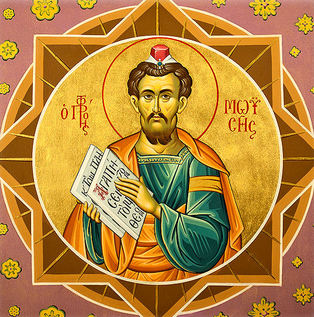|
Numbers 20:8-12 CEB 8 “You and Aaron your brother, take the staff and assemble the community. In their presence, tell the rock to provide water. You will produce water from the rock for them and allow the community and their animals to drink.” 9 Moses took the staff from the Lord’s presence, as the Lord had commanded him. 10 Moses and Aaron gathered the assembly before the rock. He said to them, “Listen, you rebels! Should we produce water from the rock for you?” 11 Then Moses raised his hand and struck the rock with his staff twice. Out flooded water so that the community and their animals could drink. 12 The Lord said to Moses and Aaron, “Because you didn’t trust me to show my holiness before the Israelites, you will not bring this assembly into the land that I am giving them.” Have you ever felt the gentle tap of God, wanting you to do something specific? I did. I had this 'ah ha' moment in the car, about two weeks ago. Then I let it go. Well, wouldn't you know, last Sunday that tap turned into a push, and I find myself writing about what I should have written about last week. What is this thought that has turned me to the keyboard? "Moses could not bring the people into the promise land." Beyond the punishment piece, I find the thought to be a statement of the purpose and breadth of legacy. Moses has a legacy. Moses brought the Israelites out of slavery. God, working through Moses, crafted the 10 commandments for the people. This was a great man. A great leader. Why was his punishment not being allowed beyond the wilderness? I believe the answer lies in the truth of what legacy is.  Legacies are created in a world of specifics. The right person has to come in the right time and place. For example, if you took Schindler out of Nazi occupied land, you have a man who possibly wanted to make a difference, but was too far away to do anything about. You take Schindler out of the WWII period, you just have a drunk with bad finances. Schindler's legacy, the one where he saved the lives of many Jews, required him to be in the right time and place. Without all three (the person, place and time) all coming together, the legacy, or more specifically, the lives that remain following Schindler's sacrifices, do not exist. Moses was called to the Wilderness following the exodus of the Israelites. That was his time and place. He would have probably been a terrible leader for the Promised Land. Think about it. This was a prince of Egypt! An Egyptian prince would have been terrible once the Israelites were learning how to move from nomads to a civilization. (However, the wilderness was more about unlearning all the bad habits of Egypt. Moses being a nomad for a few years, made him perfect for the wilderness.) See what I mean?  The interesting piece to all this is, our legacy happens when it is our turn to get off the road. The Promised Land is Moses' legacy. He's not there, but everyone knows he played a major role in making it to their destination. It is very possible Moses could have destroyed all the the hard work of the Wilderness if he had the opportunity to stick around. One of the most difficult jobs of leadership is knowing when it is time to let go and move on. One of the most difficult jobs a group has, is knowing when it is time for a new leader. When the leader or the group doesn't know when to let go, tradition becomes the villain. It can come in to quash legacy and the potential it has. Perhaps this sounds familiar: "[Insert minister's name here] did such a wonderful job when they served here. He/She could fix our problem now." "I remember how [former minister] did it. We should do it that way." "[Former minister] will always be my minister. He/She was there for [a specific event from the past]. I wish we could go back to that time." Trying to take a Moses into the Promised Land is not only unfair to the potential God has for a people moving forward, it's unfair to the metaphorical Moses. Instead of being the minister who led some very fruitful years at a church, that particular person could very potentially be the minister who led the church into death. Even if the place is right, the wrong time makes the whole thing wrong. I also wish to add, yes, there are ego driven reasons why Moses was denied access. It appears he would have had issues giving up power, which is probably one of the big reasons why the punishment was directed the way it was. Once again, I felt a call to write this out. You can decide for yourself if this message was meant for you. If it is for you, I hope I'm not a week too late. If you like what you are reading there are many ways to connect:
And as always, contributions are greatly appreciated. |
Categories
All
Archives
October 2023
|




 RSS Feed
RSS Feed